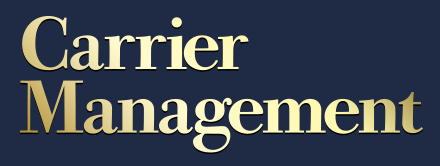This is a question I receive often, whether via the website or my LinkedIn page…
Personally, I hold a Master’s degree in Risk Management/Insurance from Florida State University along with a Certified Risk Manager (CRM) designation from the National Alliance for Insurance Education & Research.
But as I’ve learned, especially since becoming an ERM consultant, clients are more focused on work experience and a specific knowledge base, not an ERM certification.
That’s not to say my M.S. degree or CRM designation was a waste of time…
After all, my study at FSU is where I was first exposed to ERM, so if I hadn’t entered and graduated from that program, you probably wouldn’t be reading this blog right now!
However, one concern I have about risk management academic programs and designations is that they tend to focus on documentation and process rather than decision-making. Another issue is adaptation – typically, programs like these are slowest and last to adapt to changes in both the risk management field and business in general.
These are two big shortcomings in my opinion…
Whether it’s my blog or commentary from experts like Hans Læssøe and others, ERM that adds value to the organization involves way more than tying siloes together and producing a laundry list of risks. After all, executives and the Board are not going to find this very valuable for decision-making.
Some cultures and organizations place a premium on education and designations.
Up to this point, you may have the impression that I don’t think too highly of ERM-specific degree programs and designations. While I have my reservations about them, the answer to my question in the title isn’t an unqualified “no.” These programs have their place and can be valuable to individuals, depending on your background, industry, or geographic location.
One case is culture – if you live in a country that relies heavily on education over experience, you should definitely give some serious thought to pursuing an advanced degree or designation in ERM.
Another reason could be your organization. There may be an expectation that you have formal education in order to validate your role. Also, ERM-specific education may be required or necessary based on where ERM resides in the organization, such as audit.
The third circumstance for pursuing a degree or designation is needing to expand your risk management knowledge. For those of you who are coming into the ERM professional from the operational or financial side, you may need to increase your knowledge base of risk management fundamentals.
In the United States, universities that offer ERM-specific degree or certificate programs include:
- St. John’s University (New York, NY)
- NC State University (Raleigh, NC)
- Columbia University (New York, NY)
- Georgia State University (Atlanta, GA)
- Boston University
There are also several risk management and ERM certification programs offered through a variety of organizations both here in the U.S. and in Europe. These include:
- Certified Risk Manager
- Associate in Risk Management – ERM
- Certified Risk Management Professional
- International Certificate in Enterprise Risk Management
Too often, professionals feel like a degree or designation is the only way to take the next step in their careers.
Unless you fall into one of the three situations listed above, the value of pursuing an ERM certification or degree program is more up in the air. In the end, ERM is an experienced-based profession and not a designation-based one.
People in the ERM profession come from a variety of backgrounds.
My background for example is in accounting and insurance…other ERM professionals may come from an IT or engineering background. If you have extensive knowledge and experience in a particular industry, you can harness this to bring an ERM perspective to guide decisions.
The truth is you should always be learning – or as explained here, apply a growth mindset to ERM, your industry, and your organization.
Being an effective ERM professional requires way more than understanding terminology and a specific process. It involves a variety of soft skills too, such as strategic thinking, interpersonal, presentation, leadership, and more.
Unfortunately, most ERM certification programs focus on documentation and process and not so much on these “soft” skills that are so critical.
Although my advanced education and CRM designation does not guide how I approach ERM with my clients today, they did provide a great starting point for my career.
If you do end up pursuing some type of ERM certification or degree program, best of luck. But keep in mind – even the best programs are just a part of your journey as a risk professional, not the destination. Your experience and what you learn along the way will carry far more weight in determining the value your role plays in your company or organization.
Do you have some sort of ERM designation or other specific education?
How has your education influenced your direction as an ERM professional?
I invite you to share your thoughts below or join the conversation on LinkedIn.
And if you are a risk professional trying to learn how you can advance your career, or a company trying to better understand how to get more value out of ERM, please feel free to contact me today to discuss your specific situation.
Featured image courtesy of Cole Keister via Unsplash.com








